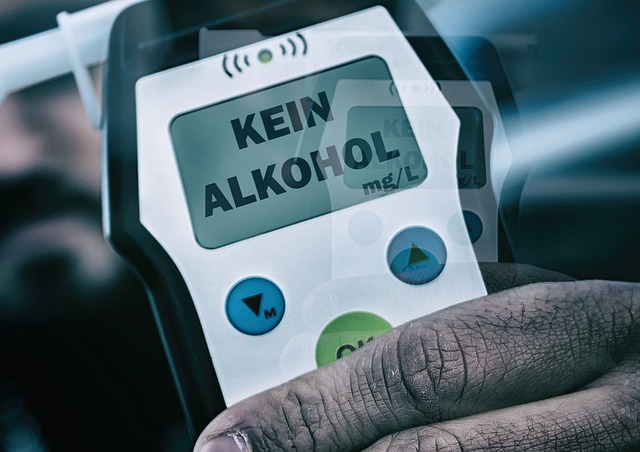Mental health conditions significantly impair driving abilities, affecting judgment, reaction time and decision-making. This is especially pertinent in DUI cases where mental health may play a role. Understanding these impacts is crucial for advocating pedestrians' rights, as injured parties often face unique challenges seeking compensation. Recognizing the link between mental health and driver behavior enhances road safety and ensures fairness for all stakeholders. Early intervention, access to treatment, and supportive systems reduce risks associated with untreated mental health conditions. Strict DUI laws protect pedestrians and hold drivers accountable, but mentally ill individuals may experience barriers in recalling events and communicating experiences, requiring sensitive handling. A strong support system, including family, friends, community groups, and mental health organizations, is invaluable for navigating legal processes. Proactive strategies like raising awareness and providing easy access to mental health services address underlying issues, prioritizing both driver safety and pedestrians' rights in DUI incidents.
Mental health and driving safely are interconnected issues that demand our attention. This article explores the complex relationship between mental illness and impaired driving, shedding light on the rising number of DUI incidents involving individuals with undiagnosed or untreated conditions. We delve into legal frameworks aimed at protecting pedestrians’ rights in such cases, while also highlighting challenges faced by mentally ill victims and defendants. Additionally, we propose strategies to enhance road safety and prevent DUI incidents related to mental health. Understanding these issues is crucial for fostering a more compassionate and just approach to driving safety.
- Understanding Mental Health and Its Impact on Driving
- The Prevalence of DUI Incidents Involving Mentally Ill Individuals
- Legal Frameworks: Protecting Pedestrians in DUI Cases
- Challenges Faced by Pedestrians with Mental Health Issues in Court
- Support Systems and Advocacy for Mentally Ill Victims/Defendants
- Strategies to Enhance Safety: Preventing DUI Incidents Targeting Mentals Health
Understanding Mental Health and Its Impact on Driving

Mental health plays a significant role in driving safety, often overlooked but just as critical as physical well-being. Conditions like anxiety, depression, or psychosis can impair judgment, reaction time, and decision-making abilities, making it challenging for individuals to operate vehicles safely. For instance, someone experiencing a panic attack might have difficulty controlling their vehicle, while a person with severe depression may struggle to maintain focus on the road.
In cases where mental health issues contribute to driving under the influence (DUI) incidents, understanding these conditions can help advocate for pedestrians’ rights. Pedestrians injured in such cases may face unique challenges when seeking compensation and justice. Recognizing the impact of mental health on driver behavior is crucial for improving road safety and ensuring fair outcomes for all parties involved in traffic accidents.
The Prevalence of DUI Incidents Involving Mentally Ill Individuals

Mental health issues can significantly impact an individual’s ability to drive safely, leading to a concerning rise in DUI (Driving Under the Influence) incidents involving people with undiagnosed or untreated conditions. Studies reveal that individuals with mental disorders, such as depression, anxiety, and psychosis, are at a higher risk of engaging in impaired driving behavior. This is particularly worrying as it raises questions about the protection of pedestrians’ rights on the road.
When someone struggles with their mental health, they may exhibit reckless driving patterns, including rapid lane changes, failure to yield, or speeding. These behaviors not only endanger the driver but also put pedestrians at grave risk. It’s essential to recognize that early intervention and access to proper treatment can reduce these risks. By increasing awareness and improving support systems for those with mental health challenges, we can aim to decrease DUI incidents and ensure safer roads for everyone, including vulnerable pedestrians.
Legal Frameworks: Protecting Pedestrians in DUI Cases

In many jurisdictions, legal frameworks have been established to protect pedestrians and ensure justice in cases involving drunk driving (DUI). These laws recognize the vulnerability of pedestrians and aim to hold drivers accountable for their actions under the influence. When a DUI incident results in an injury or fatality involving a pedestrian, strict penalties can be imposed on the offender. This may include heightened licensing restrictions, extended jail sentences, and substantial fines.
The focus on protecting pedestrians in DUI cases is reflected in various legal principles. For instance, strict liability laws hold that drivers are responsible for their behavior regardless of any negligence shown. Additionally, many regions have implemented enhanced penalties for repeat offenders to discourage reckless driving and protect public safety, especially for those on foot. These measures underscore the importance of driver responsibility and the need to prioritize pedestrian rights in DUI incidents.
Challenges Faced by Pedestrians with Mental Health Issues in Court

Mental health challenges can significantly impact an individual’s ability to navigate public spaces, including roads and crossings. In the context of DUI incidents involving pedestrians with mental health issues, several unique challenges arise during court proceedings. These individuals often struggle with cognitive impairments, memory lapses, and altered perceptions, which can make it difficult for them to recall events accurately. As a result, their testimonies may be inconsistent or unreliable, potentially affecting the outcome of their cases.
Moreover, pedestrians with mental health disorders might face barriers in communicating their experiences effectively. They may have difficulty expressing themselves clearly, leading to misunderstandings and misinterpretations during legal processes. Ensuring that their rights are protected requires sensitive handling and specialized support services to help them navigate the complex court system. Understanding these challenges is crucial in promoting fairness and ensuring Pedestrians Rights in DUI Incidents where mental health is a factor.
Support Systems and Advocacy for Mentally Ill Victims/Defendants

For mentally ill individuals involved in driving incidents, having a robust support system is invaluable. Family, friends, and community groups can play a crucial role in advocacy by offering emotional backing and practical assistance during legal proceedings. Many mental health organizations provide resources and networks specifically designed to aid those facing criminal charges while navigating their illness. These systems are essential for ensuring the defendant’s rights are protected and that their condition is considered in court.
In cases of DUI (Driving Under the Influence) involving mentally ill victims or defendants, it’s critical to recognize their unique circumstances. Pedestrians affected by mental health issues may require specialized legal representation that understands their challenges. Advocating for these individuals involves educating the public, raising awareness about mental health, and pushing for policies that protect their rights, especially in situations where they might be vulnerable on the roads.
Strategies to Enhance Safety: Preventing DUI Incidents Targeting Mentals Health

Mental health plays a pivotal role in ensuring safe driving, and implementing strategies to enhance safety is crucial in preventing DUI (Driving Under the Influence) incidents. Targeting mental health as a proactive measure can significantly reduce risks on the road. One effective approach is promoting awareness and education about the signs of mental distress or impairment, encouraging individuals to seek help promptly before getting behind the wheel.
Additionally, supporting access to mental health services and integrating these resources within community outreach programs can empower individuals to make better choices. By addressing underlying mental health concerns, we can empower drivers to resist the temptation to drive while under the influence, thereby prioritizing not just their safety but also that of pedestrians, who have rights too, in DUI incidents.
Mental health issues can significantly impact driving ability, leading to concerning statistics in DUI incidents. To protect pedestrians’ rights in these cases, understanding and addressing mental health concerns are crucial. By implementing strategies that enhance safety and advocate for support systems, we can prevent future DUI occurrences and ensure fair treatment for all involved, especially those with mental health challenges facing legal consequences. Recognizing the importance of this issue is a step towards creating a safer environment for everyone on the road.






